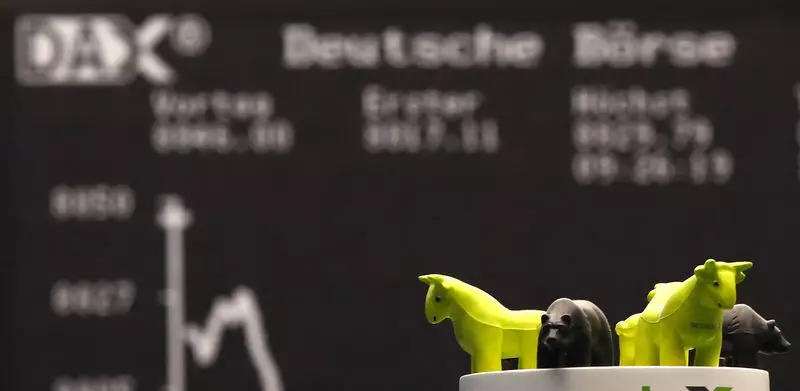As the last full trading day of 2024 unfolds, European stock markets have shown a modest decline, reflecting a strategy among investors to lock in profits from a generally positive year. The DAX in Germany remained mostly stable while the CAC 40 in France and the FTSE 100 in the UK saw small decreases of 0.1% and 0.3%, respectively. Such market movements are typical as investors take stock of their gains before the year-end, setting the stage for the anticipated New Year holidays when trading activities are usually quieter.
Trading volumes are expected to decrease as Europe prepares for early closures amidst the holiday season. The pan-European STOXX 600 index declined slightly but is still poised to conclude the year with a commendable gain of about 5.5%. Notably, the German DAX has outperformed its peers with a remarkable increase of over 19%, while the FTSE 100 adding 5% overall, contrasts with the CAC 40’s lagging performance, which has dropped by 2.6%. This mixed performance underscores the varying economic conditions and investor sentiments among different regional markets.
Recent economic data released on Monday illuminated the inflation landscape in Europe, particularly highlighting Spain’s annual EU-harmonized inflation rate which rose to 2.8% in December, an increase from 2.4% recorded in November. This inflation uptick comes against a backdrop where the European Central Bank (ECB) had recently cut interest rates, although future cuts might be delayed if inflation persists. ECB governing council member Robert Holzmann’s comments suggest a cautious approach, indicating that while interest rate hikes are not imminent, the timing of future cuts may require careful consideration due to these inflationary pressures.
In the corporate realm, Siemens Healthineers experienced a slight dip of 1% in their stock price after CFO Ralf Thomas hinted that the company is contemplating a review of its majority stake in its medical technology division. This news reflects broader trends in corporate strategies where businesses are reassessing their portfolios in light of market conditions and economic challenges.
As the week commences, crude oil prices have also seen a small reduction, influenced by holiday trading patterns. By early trading, US crude futures dipped 0.1% to $70.53 a barrel, and Brent crude followed suit, falling 0.1% to $73.69. Notably, both benchmarks have faced substantial losses throughout 2024, primarily due to concerns over diminishing demand from China, the largest oil importer globally. This decline in oil prices reflects the broader economic anxieties that have characterized the year, emphasizing the interconnectedness of global markets.
Concluding Thoughts
As 2024 comes to a close, the behavior of European stock markets, influenced by profit-taking, inflationary pressures, and sector-specific news, paints a nuanced picture. Investors and analysts alike will be closely observing how these factors will shape the economic landscape heading into the New Year, thereby influencing trading strategies and market confidence in the months to come.

